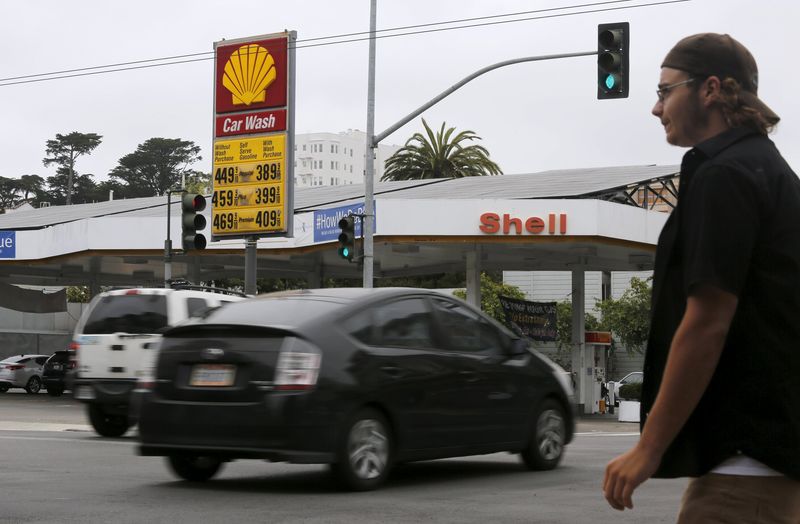By Ron Bousso
LONDON (Reuters) - The world's top oil companies are set to report yet another sharp drop in quarterly profits that could force more spending cuts due to a dim outlook for oil prices.
Oil companies rarely scale back capital expenditure (capex) in the middle of the fiscal year. But with oil prices failing to recover and even lurching lower in recent weeks after a nuclear accord between Iran and world powers, boards could take more action beyond cuts already announced, analysts say.
"Oil companies are hunkering down for a downturn that will take longer than some initially thought," Martijn Rats, head of European oil and gas equity research at Morgan Stanley (NYSE:MS), told Reuters.
International oil companies including Exxon Mobil (N:XOM), Chevron (N:CVX), Royal Dutch Shell (L:RDSa), BP (L:BP) and Total (PA:TOTF) all reduced 2015 spending by 10 to 15 percent from last year's levels in response to the low oil prices, cutting operating costs, laying off thousands of workers and scrapping huge and costly projects around the world.
"Companies will keep their foot to the peddle with regards to cost savings and capex reductions. They will try to support balance sheets in any way they can, including asset sales," Rats said.
Second-quarter net profits at seven oil majors are expected to decline by at least 40 percent from a year earlier, according to Reuters estimates.
Oil prices averaged $60 a barrel in the second quarter of 2015, slightly higher than the previous quarter but down from $110 a barrel a year earlier.
Prices remain under pressure, with falling Chinese stock markets and the Greek debt crisis have raised concern about demand, while the Iranian nuclear deal reached this month could lead to higher oil exports from the Islamic Republic.
In the case of BP, Shell and Statoil , lower production as a result of maintenance will further impact revenues.
Dividend payouts to shareholders, considered sacrosanct by investors, are not expected to be cut, according to analysts' estimates. Italy's Eni (MI:ENI) is the only major oil company to have reduced dividends since the price drop.
Some companies will face scrutiny on specific issues.
Shell's management is expected to offer further clarity on its proposed $70 billion (44.88 billion pounds) acquisition of British rival BG Group (LONDON:BG), the biggest deal in the sector in over a decade.
For BP, investors will focus on management's plans to grow its portfolio after the $18.7 billion settlement for its deadly 2010 Gulf of Mexico oil spill.
Chevron not only has grappled with falling crude prices, but also setbacks at several mega projects, including construction delays and accidents at liquefied natural gas developments in Angola and Australia, as well as engineering flaws at the Big Foot deepwater oil site in the Gulf of Mexico.
REFINING SAVES, AGAIN
But it is not all gloom. Refining and trading - known in the industry as downstream - are once again expected to come to the rescue as global demand for oil products, particularly gasoline, remained strong throughout the quarter.
Second-quarter refining margins for Total, Europe's largest refiner, rose to $54 per tonne from $11 a tonne a year earlier and $47 a tonne in the first quarter of 2015.
"The biggest surprise over 2Q15 compared to our estimates was in the Downstream where refining margins across the globe remained elevated despite the 15-19 percent increase in oil prices," Jefferies said in a note.
Exxon, the world's biggest listed oil company, and its U.S. peer Chevron are expected to report lower year-on-year rises in downstream earnings compared with BP's 216 percent gain and Shell's 140 percent, according to Jefferies, as both European companies have significantly bigger trading divisions.
The outlook for the year remains uncertain at best as oil is expected to remain low while refining margins have already declined sharply in July.
"Oil prices over the near term also remain a concern for us with the oil market potentially oversupplied for longer than we previously anticipated," Jefferies said.
Shell expects oil prices to recover gradually over the next five years, rising to around $67 a barrel in 2016.
BP and Statoil (OL:STL) kick off results, on July 28.
